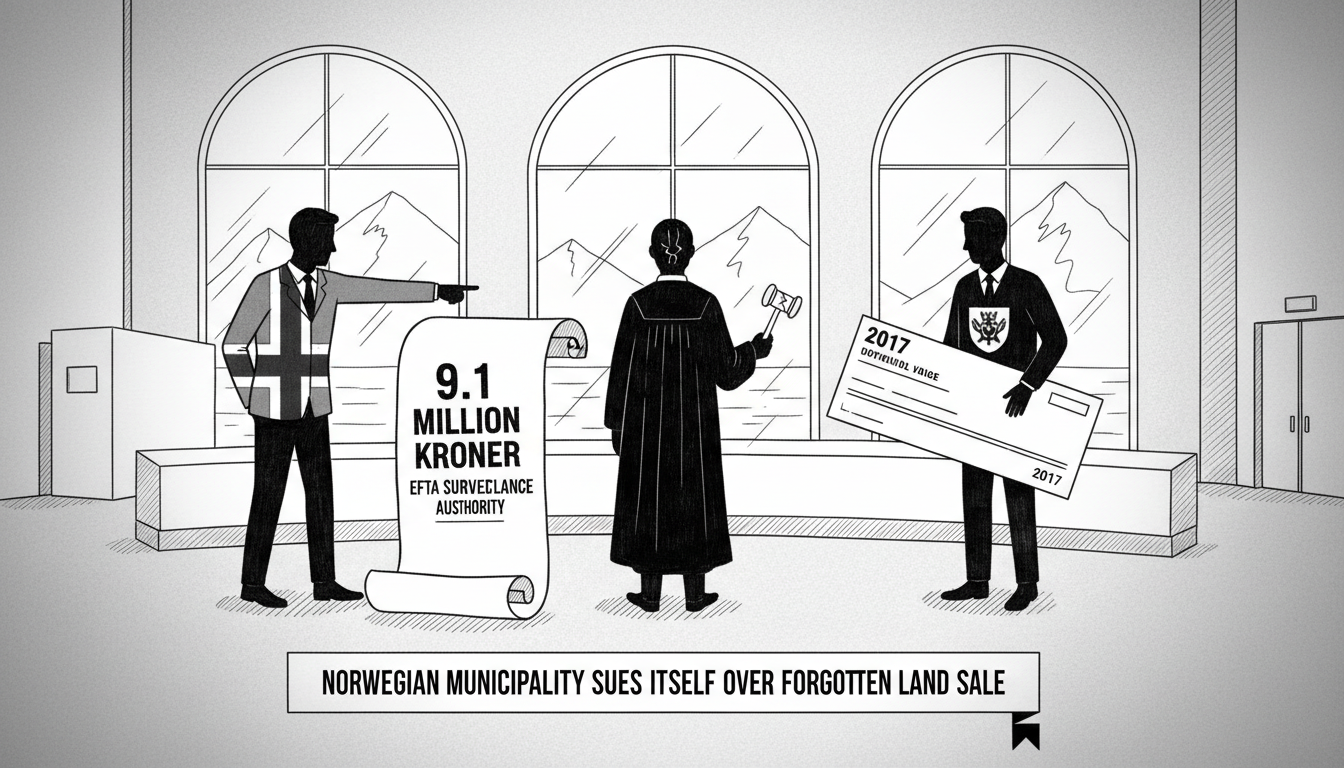A Norwegian municipality discovered a costly administrative error three years after selling valuable land. Lørenskog Municipality had forgotten to invoice the buyer for a property transaction. The oversight nearly cost the local government millions in lost revenue.
The land sale to Masserud Utvikling occurred back in 2017. The company is part of Olavsgaard Group, which owns approximately 43,000 square meters of commercial property in the Nedre Romerike area. The agreed purchase price stood at 8.3 million Norwegian kroner.
Parties had arranged that payment would follow once the buyer received usage permission. This would happen after the property transfer. Neither payment nor invoice appeared at the scheduled time. The municipality's division manager explained the unusual situation.
He said the parties agreed the purchase sum would be paid when usage permission was granted. The buyer did not pay, and the municipality did not collect the money at the agreed time.
The mistake remained undetected until early 2021. By then, Norwegian law had rendered the claim invalid. Legal statutes require payment demands within three years. Otherwise, claims become time-barred.
Municipal officials refused to accept the financial loss. They filed a complaint with the EFTA Surveillance Authority (ESA). This watchdog ensures compliance with European Economic Area rules.
Lørenskog Municipality argued their forgetfulness constituted illegal state aid. The administrative error provided Masserud Utvikling with financial advantage unavailable under normal market conditions. So the local government essentially sued itself through national channels.
The division manager noted they found no previous similar cases. Their thorough regulatory investigation suggested probable entitlement to payment under EEA rules.
ESA delivered its decision before summer. The authority supported the municipality's position. Regulators concluded the forgotten payment claim created improper economic benefit.
This different regulatory framework features a ten-year limitation period. After calculating interest adjustments, ESA determined Masserud Utvikling owed 9.1 million kroner.
The division manager expressed satisfaction with ESA's alignment with their assessment.
ESA decisions address Norway at the state level. Their published announcement stated Norway must take all necessary measures to recover the illegal support. The Ministry of Trade and Industry handled the matter nationally.
Documents show the payment deadline passed without municipal collection. ESA instructed forced collection upon learning about the situation.
Masserud Utvikling's CEO confirmed recent payment. She said they settled the claim two weeks prior but strongly disagreed with ESA's decision.
She argued this creates different rules for government versus private entities. It makes public-private collaboration much less predictable.
The company retains appeal options but remains undecided about pursuing them.
When asked about their considerations during the three-year invoice gap, the CEO maintained the municipality simply forgot to bill. No further assessments occurred beyond that reality.
Lørenskog represents Norway's fastest-growing municipality over the past decade. Population surged from 35,000 to 50,000 residents since 2015.
This expansion required substantial investments and increased spending. It created massive debt totaling seven billion kroner according to public broadcasting reports.
Last year saw the municipality operate 150 million kroner in deficit. Interest and debt repayment approached half a billion kroner on the expenditure side.
Municipal calculations indicate empty coffers within two years if current trends continue.
Autumn budget proposals included over 100 cuts. These would close youth clubs, ice rinks, swimming pools, and summer school programs.
The Conservative mayor also considers implementing property taxes. She acknowledged this becomes a natural topic given their current financial situation.
This case highlights the tension between bureaucratic efficiency and legal protections. Municipal financial pressures create difficult choices between service provision and revenue generation. The unusual self-lawsuit demonstrates creative problem-solving within strict regulatory frameworks.

